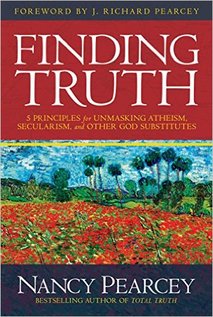
Despite its diminutive size, the shortest book in the Bible – the Third Epistle of John – carries a powerful message. On the surface, the epistle is a short exhortation from the apostle to the believer Gaius encouraging him to give hospitality to another believer, Demetrius (who may have carried this letter as an introduction), because a powerful local church leader, Diotrephes, was forcibly denying hospitality to members from outside his congregation.
This is perhaps all that we might expect to see in a “book” that is only 14 verses long, but John seems to have used the opportunity of this letter to convey a simple but profound truth regarding the interaction between the Christian qualities of love and truth – which are mentioned in combination, directly or indirectly, ten times in the letter’s 14 verses.
Beginning in the first verse, John salutes Gaius as someone “whom I love in the truth” (3 John 1:1), setting the theme of his message. In verse 3, and then again in verse 4, John juxtaposes joy with truth, and we should remember that joy is associated with love in many biblical passages – so that the pairing of joy and truth can be seen as an indirect expression of love and truth. In the following verses there are other indirect correlations between the qualities of love and truth, such as verse 8 where hospitality and truth are related.
John then uses the unhospitable Diotrephes as a negative example of the failed connection between love and truth by writing: “Diotrephes, who loves to be first, will not welcome us. So when I come, I will call attention to what he is doing, spreading malicious nonsense about us” (3 John 1:9-10a). While it is easy to read over the connection here, we should read the statement in the context of John’s stress on love and truth throughout the letter. Diotrephes’ failed love – his love of self and self-aggrandizement – is paired with his failed truth – his spreading of malicious lies.
This pattern is repeated when John then writes “…he even refuses to welcome other believers. He also stops those who want to do so and puts them out of the church” (3 John 1:10b), showing Diotrophes’ failure of love has a direct connection to his subsequent failure of truth in twisting doctrine so that true members of the faith are expelled.
Next, John says, “Dear friend, do not imitate what is evil but what is good” (3 John 1:11a), and then gives two corresponding examples using the faithful Demetrius who is to be imitated. In this case, John says, “Demetrius is well spoken of by everyone—and even by the truth itself” and “We also speak well of him, and you know that our testimony is true” (3 John 1:12). In other words, Demetrius is clearly liked and loved as a result of his behavior – his love – and the result is his right relationship with the truth.
So, in the course of his short letter, John repeatedly shows that we cannot express – or fail to express – love without it affecting the truth in our lives. Conversely, he tells us, we cannot express – or fail to express – the truth without it relating to the love we show. This is a principle that extends far beyond the particular circumstances in which this little letter was written – one that applies to all of us in every aspect of our lives. John tells us that love and truth are interconnected: we cannot weaken or strengthen one without the other being weakened or strengthened also.




 RSS Feed
RSS Feed
